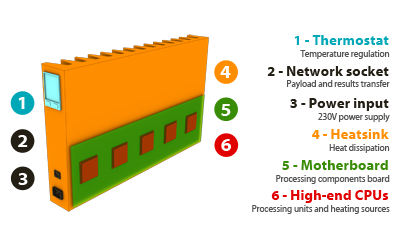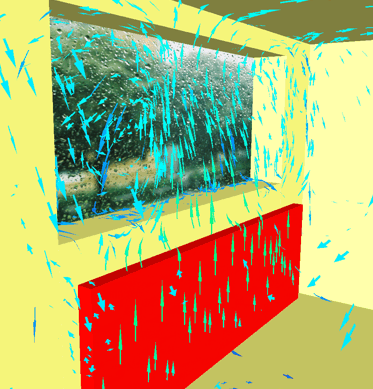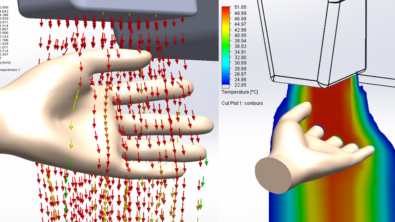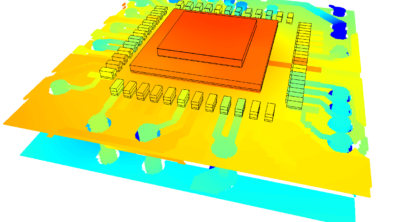If You’re Going to Lose it, You Might as Well Use it!
A lot of engineering involves the management of energies, converting them from one form to another, channeling off useful work to power our cars, planes, phones, lights etc. To date we haven’t come up with a system to channel all energy into a desired task. Even the most advanced power generation systems still end up heating water to steam to drive turbines, a cycle that is no more than about 38% efficient. The rest of the energy mostly lost to heat. Electronics are no different. A lot of power is consumed just to move electrons and photons about. That useful work doesn’t require much energy (what’s the kinetic energy of an electron?), nearly all the input energy is lost to heat in the process. If you’re going to lose it, why not use it?
Electronics dissipate energy as heat power and thus get hot. Too hot and they start to malfunction then ultimately fail completely. Getting the heat out as fast as it’s generated keeps the temperatures down. This is at the heart of electronics thermal management. Tools such as FloTHERM were designed to help simulate such heat transfer and resulting temperature levels. The heat still has to end up somewhere, usually an assumed ‘ambient’. A pool of cool so big that it tends to keep at just about the same temperature even when heat is dumped into it. A good enough engineering assumption most of the time. However if you want that ambient to heat up then the engineering challenge of dealing with waste heat becomes an engineering opportunity!

A French company, Qarnot Computing, provides a computer called Q.rad that is designed to be a room heater, provided as part of a cost effective distributed HPC cloud deployment system. Their HPC customers are linked to their heating customers so that HPC demand is automatically distributed to the Q.rad farm. An ingeniously green approach, in recognition of the inefficiencies that blight our modern world.
Until such time as a room temperature superconductor is developed (http://bestsf.net/greg-egan-zero-for-conduct-twelve-tomorrows/), or we all go live inside a mega data center, we will be faced with the more pressing challenge of determining where to place Q.rad in our home to ensure efficiency from the heat leaving Q.rad to it reaching your extremities. Keep warm everyone!
25th November 2014, Ross-on-Wye


